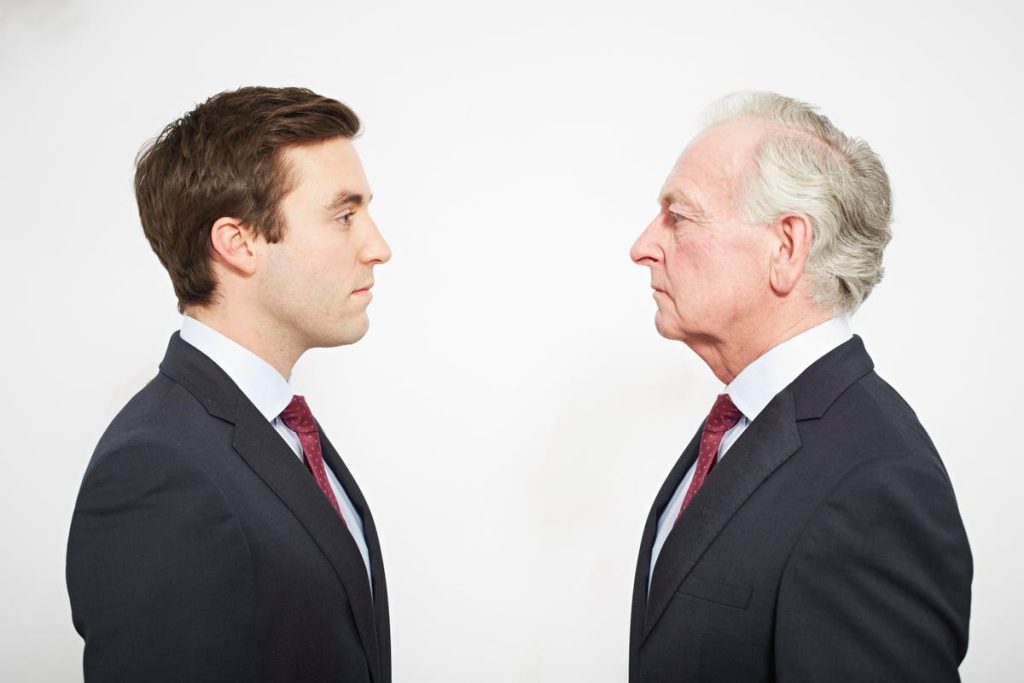By identifying where young people and their bosses aren’t connecting, we can work toward bridging the gap in the workplace.
There have been plenty of articles written about the challenges that bosses from older generations experience when working with colleagues from the younger generations, specifically Gen Z (who have birthdays ranging from 1997 to 2013). Typically, there’s a negative slant to these pieces, kind of like, “Why don’t these young people do things the way I’m used to?”
But maybe it’s time to flip the script and look at the situation from the perspective of those young people who’ve entered the work environment under incredible stressful conditions created by the pandemic and continued economic uncertainty.
That was the goal of a new study sponsored by Deloitte Digital to better understand what Gen Z wants in the workplace.
“In my role, I focus on the lived experiences of the people we call customers, workers, and partners,” says Amelia Dunlop, Chief Experience Officer at Deloitte Digital. “That is why I was curious about the lived experience of members of Gen Z as they started entering the workforce three years ago.”
Led by a Gen Z influencer, Michael Pankowski, the study dug into what members of Gen Z think is the biggest disconnect with their bosses—and how those gaps can be bridged.
I connected with Dunlop over email to learn more about the insights gleaned from the study and how we can all be more aware of the amazing strengths and energy that members of the younger generations can bring to the workplace.
Where Gen Z and their bosses disagree
Deloitte Digital’s research identified four key areas where members of Gen Z view work differently than their bosses:
1. Contrasting views on the importance of empathy.
“Gen Z has been very open about how much they value empathy and have marked empathy as one of the top three characteristics they look for in bosses,” says Dunlop. “However, many bosses don’t reflect the same value of empathy in the top three characteristics they look for in their employees.” Case in point: One in three Gen Zers report they do not feel cared for in the workplace.
2. Divergent views on the impact of work on mental health.
One of the biggest challenges Gen Zers experience is coping with the reality that work can become an all-consuming experience, especially when they operate in a hybrid work environment. The disconnect is exacerbated because while more than 60% of bosses say they try to improve their employees’ wellbeing by helping them maintain a healthy schedule, less than 50% of Gen Zers agree that their boss helps them maintain a schedule that supports their mental health.
3. Time off as a reward.
One area where Gen Z and their bosses are on the same page is the need for a reward and recognition structure. The problem is that each has a different point of view on what this structure looks like. While Gen Z ranked time off as the preferred choice for recognition, bosses favor more traditional forms of reward and recognition, such as pay raises or bonuses.
4. The importance of work to personal identity.
Another barrier that exists between members of Gen Z and their bosses is the importance of work in defining their identity. While older bosses (86%) tend to define themselves with the work they do, members of Gen Z (61%) continue to navigate that dynamic. “Once again, the hybrid work environment plays a key role in this as it can be difficult for Gen Zers to differentiate the line between work and home as they transition into the workforce,” says Dunlop.
Four reasons these differences exist
Many Gen Z workers entered a very different workplace than what any other generation experienced. In particular, many were forced to quickly adapt to working in a remote or hybrid environment, without the benefit of leveraging existing workplace relationships.
“I believe that we as leaders are being asked to guide this next generation up a mountain that we have never had to climb ourselves,” says Dunlop. “We need to teach this next generation skills without as much direct, in-person, interaction as we benefited from.”
Another source of the disconnect between Gen Z and their bosses is that they have had access to a platform since they were old enough to be online. “Every 18-year-old has had an opinion that they thought mattered,” says Dunlop. “However, Gen Z is the first generation that came of age during a time when they had a microphone through social media. They drove Tik Tok’s popularity, but even before that, they went viral with ‘Ok, Boomer’ and made a name for themselves as a driving force in popular culture.”
A third driver of this gap is that Gen Z has grown up in an era where mental health awareness has been prioritized. “They’ve grown up with a vocabulary around mental health that wasn’t available to previous generations and are very vocal about it,” says Dunlop.
A fourth factor to consider is that the technology Gen Z has grown up with dramatically influences how they see and interact with the world. For instance, most college graduates by 2025 will have written their essays, cover letters and their resumes almost entirely with generative AI—an experience current leaders have not had.
When you look at the gaps this way, it becomes easier to see why Gen Z might not see their bosses as empathetic or supportive of their well-being. “They have lived through very different experiences,” says Dunlop, “and they may have yet to meet in person!”
Three ways to bridge the gap
Given that 36% of the global workforce is either Gen Z or millennials, older bosses have every incentive to bridge the sources of disconnect with members of the younger generations.
“From a sheer volume, they’re an important group to keep in mind, and they’re not even leaders yet,” says Dunlop. “Fast forward to when Gen Z become managers and leaders and inherit major global challenges such as sustainability and generative AI. This generation of leaders needs to guide Gen Z and teach them the human skills that we learned through real-life interactions, which will arm them with the needed tools and empathy to face these major challenges.”
The good news is that there are strategies older bosses can turn to for help.
The first is to get curious. “Acknowledge that your lived experience is not someone else’s lived experience,” says Dunlop. “Seek out ways to inform and educate yourself about what these differences are.”
Another tactic is to establish a mentor-mentee relationship with a member of Gen Z—something that Dunlop says she has done with Michael Pankowski. “I believe that I learn as much from him as he ever does from me,” says Dunlop.
A third way to bridge the gap, according to the report, is to co-create. As the report states: “More than other generations, Gen Z wants to have their voices heard. They want agency to create a future that they find meaningful. Enlist their energy and problem-solving skills.”
Optimism for the future
Rather than looking at the members of Gen Z as some kind of challenge to deal with, it’s about time to recognize how this generation should make us all feel optimistic about the future.
“First and foremost, they exhibit strong entrepreneurial spirit, making them the most enterprising generation,” says Dunlop, adding that members of Gen Z prioritize sustainability when making purchasing decisions, demonstrating their commitment to environmental responsibility.
Members of the younger generations also actively advocate for mental health, says Dunlop, which highlights young people’s compassion and concern for well-being. “Their heightened awareness of social issues and dedication to social justice, encompassing environmental, social, and governance matters, further contribute to their positive impact,” says Dunlop. “These qualities not only benefit Gen Z but also hold promising prospects for future generations.”
I wholeheartedly agree and firmly believe that in Gen Z, we are looking at the next greatest generation. It’s time to stop focusing on how they’re different from folks like me from older generations and start celebrating how they are leading the charge to a better and brighter future.
Read the full article here










